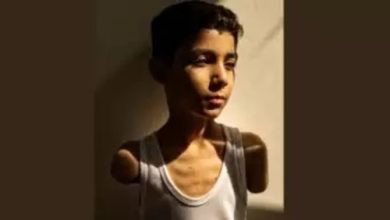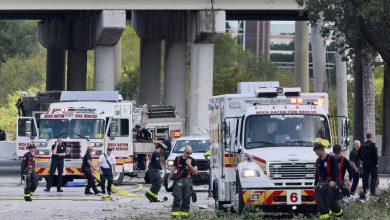The Iraqi military says it has retaken a bridge across the River Tigris in Mosul, after driving back Islamic State militants in the city’s south-west.
The Federal Police Rapid Response Force advanced into the Jawsaq district on Monday and reached the Fourth Bridge.
Mosul’s five bridges have been badly damaged in fighting since October.
But once it is repaired, the Fourth Bridge could help the military bring in reinforcements and supplies from the government-held east of the city.
Meanwhile, UN aid workers say they are extremely concerned by the humanitarian situation in remaining IS-held areas of western Mosul, where about 750,000 people are believed to be living.
The World Food Programme spoke to a number of families there who reported that food prices were rising drastically or that they were unable to get food at all.
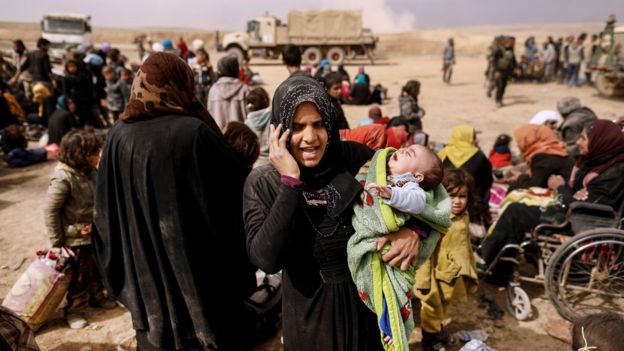
“The situation is unbelievable,” a 46-year-old man was quoted as saying. “There is no food, no clean water, no gas for heating, no medicine and no services.”
Food in western Mosul has become scarce since the operation to recapture the city began four months ago. IS supply lines have been cut by government forces, who have been supported by US-led coalition air strikes and advisers on the ground.
The Iraqi government announced in January that units from the army, the interior ministry’s Counter-Terrorism Service and the Rapid Response Force had “fully liberated” eastern Mosul.
Since launching the operation to retake the west of the city a week ago, they have driven militants from the international airport, a military base, a power station and several residential areas, according to the military.
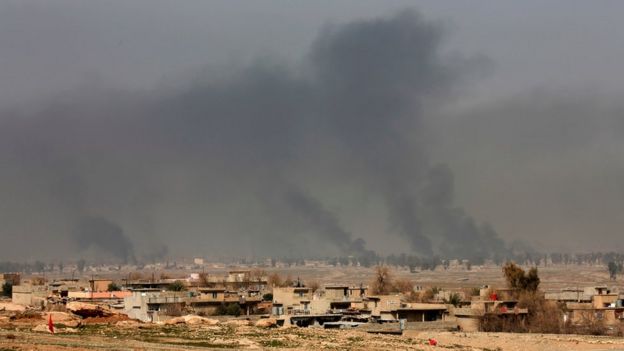
On Monday, the operation’s overall commander, Lt Gen Abdul Amir Rashid Yarallah, announced that Rapid Response officers had “liberated” Jawsaq and reached the western foot of the Fourth Bridge.
“That means the bridge is under control on both sides,” military spokesman Brig Gen Yahya Rasool told AFP news agency.
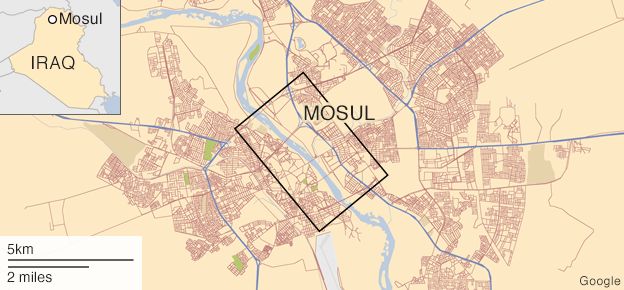
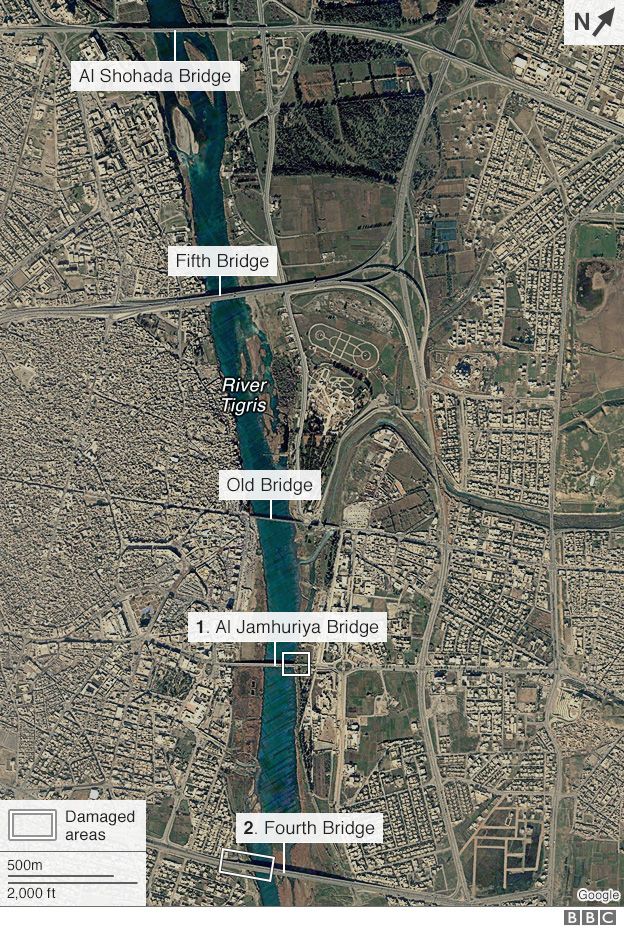
It is the southernmost of Mosul’s bridges, which were disabled by US-led coalition air strikes before being damaged by retreating IS militants.
As government forces control the eastern bank of the Tigris, engineers could now repair the structure or float a pontoon or “ribbon” bridge on the water alongside it.
Troops initially made rapid gains on Mosul’s western outskirts, but they have faced more resistance in densely-populated residential areas, where militants have been using sniper rifles, drones, anti-tank missiles, mortars and suicide car bombs.
Gen Rasool described the street fighting as “intense”, but added: “Our forces are fighting deep in the west, the enemy is broken.”
The western side of Mosul includes the old city and the Great Mosque of al-Nuri, where IS leader Abu Bakr al-Baghdadi proclaimed the creation of a “caliphate” in July 2014, after the jihadist group overran large parts of northern and western Iraq.
(BBC)







